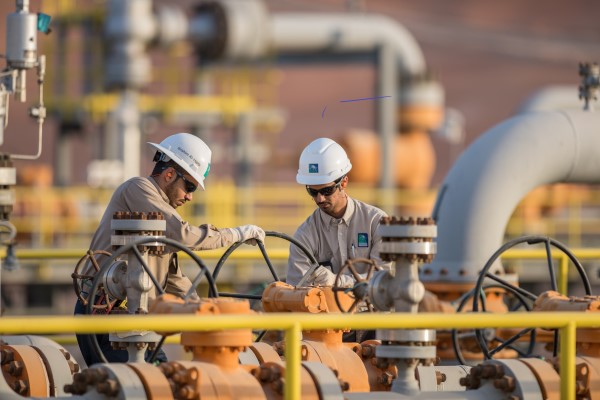Saudi Arabia to Reduce Crude Oil Supply to China by 5.8 Million Barrels in June, Sources Say
(Reuters) — Chinese refiners will lift less Saudi crude oil in June than in May, people with knowledge of the matter said on Friday.
The supply cuts come after the world's top exporter Saudi Aramco hiked official selling prices (OSPs) for most of its crude to Asia to the highest in five months despite weak refining margins.
The volume of Saudi crude to be loaded for China is estimated to fall by 5.8 million barrels in June from 45 million barrels in May, the sources said.
These include supply cuts of 6.8 million barrels to state and private refiners as well as a 1 million barrel increase for one of the private refiners, the sources said.
The cuts were mainly for Arab Medium and Arab Heavy crude, they said.
Some of the cuts for Arab Heavy were also made by Aramco, the sources said, adding that Saudi Arabia will likely require more crude to fuel power plants during summer.
Chinese refiners are lifting less Saudi crude because of the high OSPs as well as weak margins, two of the sources said.
Three other Northeast Asian refiners will receive full contractual supplies in June.
Aramco did not immediately respond to requests for comment outside of its office hours.
Related News
Related News

- Enbridge Plans 86-Mile Pipeline Expansion, Bringing 850 Workers to Northern B.C.
- Intensity, Rainbow Energy to Build 344-Mile Gas Pipeline Across North Dakota
- Enbridge Sees High Demand to Expand 593-Mile Canada-to-U.S. Gulf Oil Pipeline
- Energy Transfer to Build $5.3 Billion Permian Gas Pipeline to Supply Southwest
- Strike Pioneers First-of-Its-Kind Pipe-in-Pipe Installation on Gulf Coast with Enbridge
- A Systematic Approach To Ensuring Pipeline Integrity
- 275-Mile Texas-to-Oklahoma Gas Pipeline Enters Open Season
- LNG Canada Start-Up Fails to Lift Gas Prices Amid Supply Glut
- Enbridge Sees High Demand to Expand 593-Mile Canada-to-U.S. Gulf Oil Pipeline
- Strike Pioneers First-of-Its-Kind Pipe-in-Pipe Installation on Gulf Coast with Enbridge





Comments